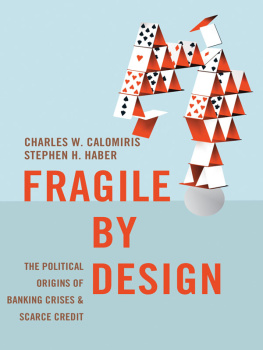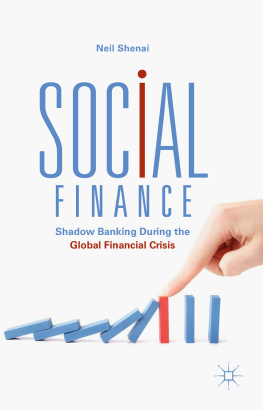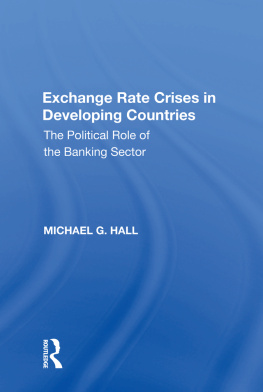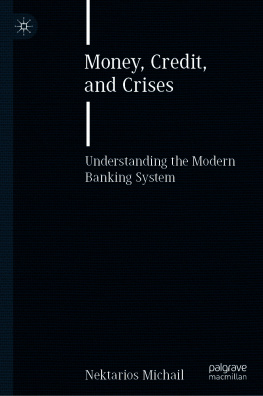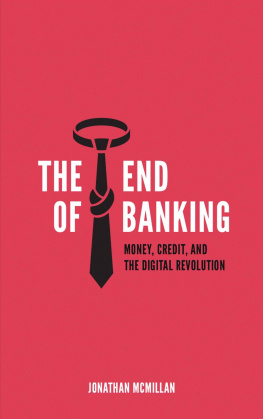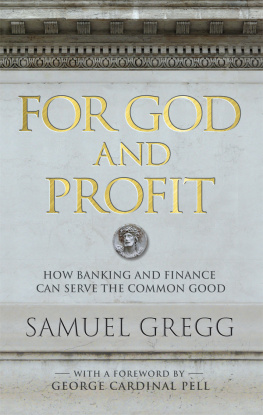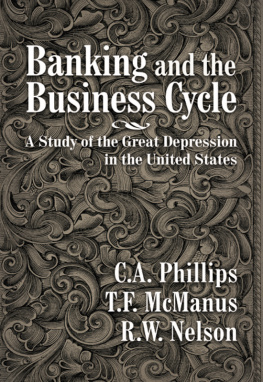
FRAGILE BY DESIGN

THE PRINCETON ECONOMIC HISTORY OF THE WESTERN WORLD
Joel Mokyr, Series Editor
A list of titles in this series appears at the back of the book.
FRAGILE BY DESIGN

The Political Origins of Banking Crises and Scarce Credit
CHARLES W. CALOMIRISandSTEPHEN H. HABER
PRINCETON UNIVERSITY PRESS
Princeton and Oxford
Copyright 2014 by Princeton University Press
Published by Princeton University Press, 41 William Street, Princeton, New Jersey 08540
In the United Kingdom: Princeton University Press, 6 Oxford Street, Woodstock, Oxfordshire OX20 1TW
press.princeton.edu
Jacket illustration: Anne-Lise Boutin / Marlena Agency. Design by Jessica Massabrook.
All Rights Reserved
Library of Congress Cataloging-in-Publication Data
Calomiris, Charles W.
Fragile by design : the political origins of banking crises and scarce credit / Charles W. Calomiris and Stephen H. Haber.
pages cm. (The Princeton economic history of the Western world)
Includes bibliographical references and index.
ISBN 9780-691155241 (hardcover : alk. paper)
1. Banks and bankingHistory. 2. Bank failuresHistory. 3. CreditHistory. I. Haber, Stephen H., 1957 II. Title.
HG1561.C35 2014
332.109dc23
2013033110
British Library Cataloging-in-Publication Data is available
This book has been composed in Sabon with Whitney display by Princeton Editorial Associates Inc., Scottsdale Arizona.
Printed on acid-free paper.
Printed in the United States of America
1 3 5 7 9 10 8 6 4 2
TO OUR DAUGHTERS
Eleni Sophia Calomiris
Zoi Nicoletta Calomiris
Natalie Camila Haber
CONTENTS
PREFACE
B ooks are not written by chance. This one was written from 2010 to 2013, after the worst three decades of banking crises the world has ever seen, and in the immediate wake of the worst U.S. banking crisis since the Great Depression.
We have both spent much of our academic lives writing about banks and their politics and history and have been involved in advising governmental and regulatory agencies about the deficiencies of banking systems. Over the years, we have been struck by the disconnect between the way the public and the press experience and discuss banking crises and the way that we and our colleagues think about them as scholars.
Most popular narratives about banking problems focus on very short-term considerations (this quarters lending growth, profits, or scandals) and on the personal details, including the moral failures, of the careers of bankers and regulators. While the public recognizes that banking problems are matters of intense political debate with serious consequences for the performance and stability of the economy, the media provide little discussion of the systematic role of politics in the determination of banking systems performance. This deficiency leaves the public in a curious position: they know that they should be deeply concerned about banking regulation; they know that there are links between politics and banking; but they are unsure what those links are and even less sure what to do about them.
This book is an attempt both to bridge that gap and to offer a contribution to scholarship. We seek to explain the political roots of differences in banking-system performance across countries and over time. In order to do so, we integrate evidence and analytic tools from three distinct disciplines: history, political science, and economics.
We argue that banks strengths and shortcomings are the predictable consequences of political bargains and that those bargains are structured by a societys fundamental political institutions. Citizens may be satisfied to blame the deficiencies of their countrys banking system on the moral failings of bankers or regulators, or on market failures related to greed and fear, but when they do so, they miss the opportunity to see banks for what they really are, for better or worse: an institutional embodimenta mirror of sortsof the political system that is a product of a societys deep history.
This project grew out of our participation in the John and Jean De Nault Task Force on Property Rights at Stanford Universitys Hoover Institution. We had known one another for over two decades, and our paths had crossed at numerous conferences and workshops. It was within the De Nault task force, however, that the two of us first sat down together to explore three fundamental questions about banking that defined the starting point of this book: Why are some societies able to construct banking systems that avoid banking crises, while others are not? What makes some societies limit the right to charter a bank to a favored few, even though doing so limits the availability of credit to broad swaths of the population? Why do societies sometimes fail to protect the property rights of lenders, depositors, and bank stockholders in ways that undermine the ability of banks to raise funds or lend them?
Four years and many conversations and cross-country visits later, we completed this manuscript. Along the way, we accumulated more intellectual debts than we can ever repay. We are indebted to many colleagues at institutions around the world who offered comments on chapter drafts, or on the entire manuscript, including Daron Acemoglu, Terry Anderson, Michael Bordo, Michael Boskin, Florian Buck, Forrest Capie, Gerard Caprio, Matthew Carnes, Latika Chaudhary, Isaias Chvez, Gustavo del Angel-Mobarak, Darrell Duffie, Roy Elis, Richard Epstein, Nick Eubank, Adriane Fresh, Alex Galetovic, Richard Grossman, James Huffman, Scott Kieff, Dorothy Kronick, Sandra Kuntz Ficker, Ross Levine, Gary Libecap, Jonathan Macey, Noel Maurer, Allan Meltzer, Victor Menaldo, Joel Mokyr, Ian Morris, Aldo Musacchio, Larry Neal, Raquel Oliveira, Agustina Paglayan, Edward Pinto, Alex Pollock, Lucas Puente, Russ Roberts, James Robinson, Jared Rubin, Thomas Sargent, Henry Smith, Paul Sniderman, William Summerhill, John Taylor, Larry Wall, Peter Wallison, and three anonymous referees. We also thank our students in classes at Columbia University and Stanford University, where we taught parts of the book in various courses; their reactions taught us a great deal about how to frame and organize the material. Our research assistants, Ishan Bhadkamkar, Ianni Drivas, and Patrick Kennedy, helped us find data and track references as well as providing cogent comments about chapters as they took shape.
We were fortunate to be able to present drafts of chapters at workshops and conferences and to receive valuable feedback. We thank the institutions that organized those workshops and conferences, including the Banco de Mxico, the Center for Economic Studies of the Ludwig-Maximilians-Universitt Mnchen, the Centro de Investigacin y Docencia Econmicas, Chapman University, the All-Chicago Friends of Economic History Dinner, the Federal Reserve Bank of Atlanta, Harvard Business School, the Hoover Institutions Working Group on Economic Policy, the International Monetary Fund, the London School of Economics, and the World Bank.
Research support does not grow on trees; we are therefore grateful to John Raisian and Richard Sousa, director and senior associate director of the Hoover Institution, respectively. Seth Ditchik, Beth Clevenger, and Terri OPrey at Princeton University Press and Peter Strupp at Princeton Editorial Associates ably shepherded the manuscript through the production process. We owe special thanks to our series editor, Joel Mokyr, whose enthusiasm, humor, and constructive criticisms did much to improve the book and to facilitate its timely completion. Finally, we are deeply grateful to our wives, Nancy Calomiris and Marsy A. Haber, for their constant patience, support, and encouragement throughout the four years of our bicoastal collaboration.
Next page
